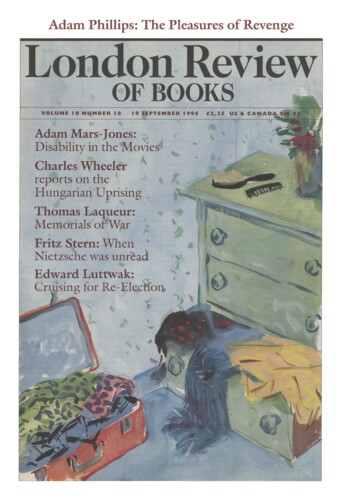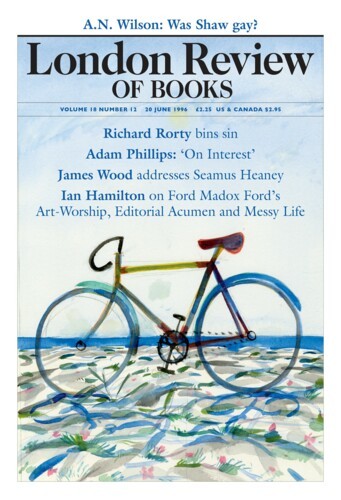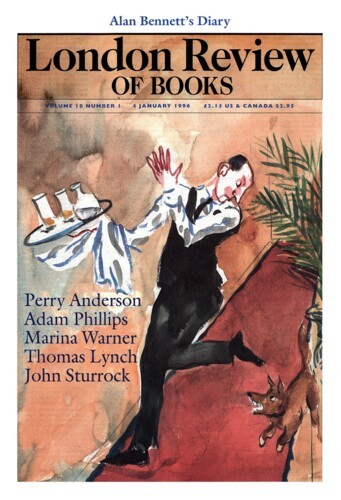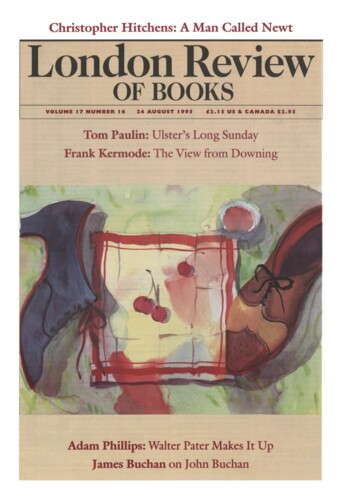Getting Even
Adam Phillips, 19 September 1996
We wouldn’t think of anything as a tragedy if we did not have a deeply ingrained sense of order already there to be affronted. Tragedy in life, and as art, exposes by violation our mostly unconscious assumptions about how the world should be; and how often we take for granted that it is as it should be – a world in which, say, no one ever takes revenge, or dies. ‘If we were all wicked,’ A.D. Nuttall writes, ‘there would, perhaps, be no problem.’ But the ‘perhaps’, as he knows, points to the problem. There is – the title of his shrewd and learned book acknowledges it – an unnerving, and not quite so easily explained, disparity between our profound fascination with tragic art and absolute horror of real tragedy. It is a difference calculated to expose our more unsettling assumptions about the value of art, and about what we might be doing when we are enjoying something that appals us.’




